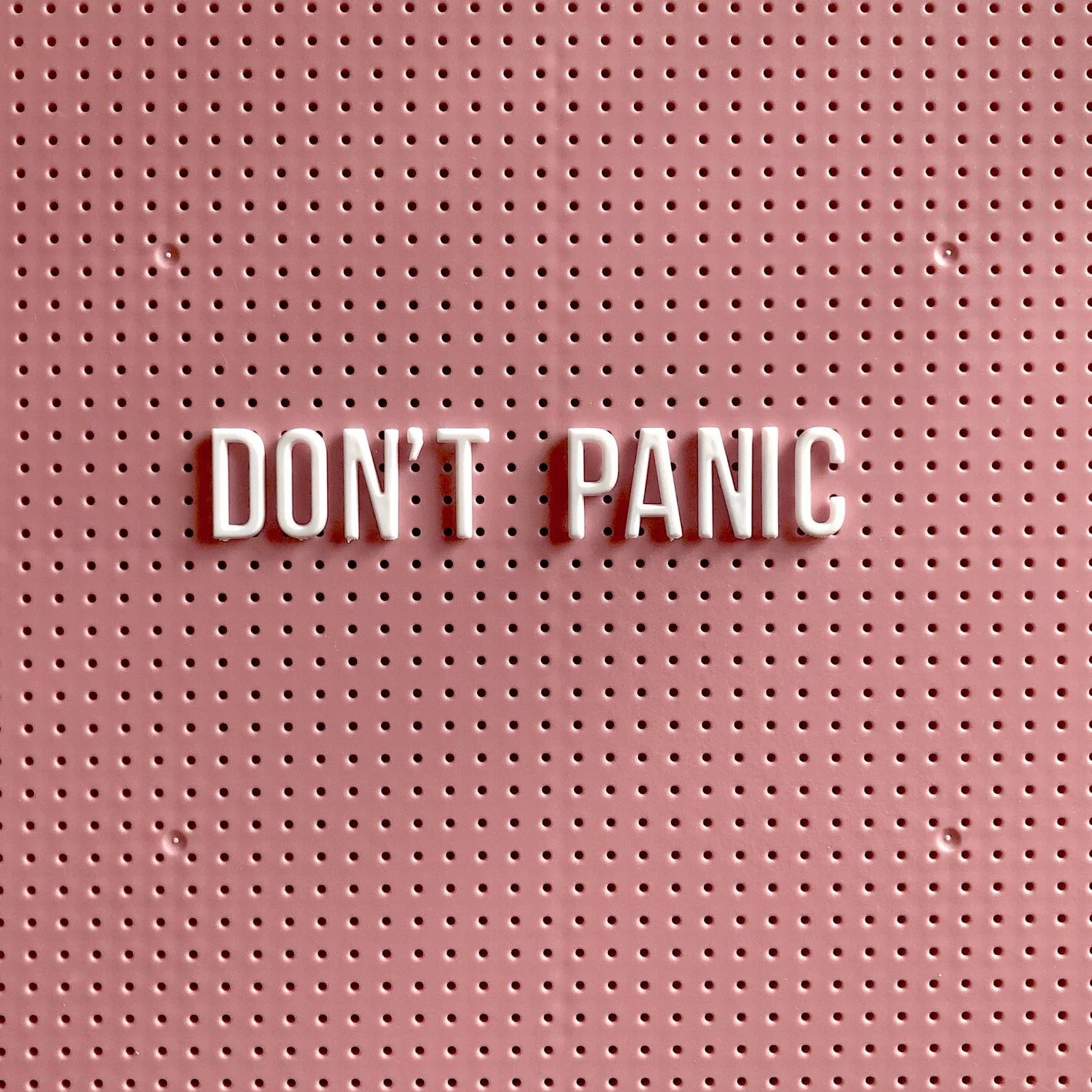Simply put, bloating is just excess intestinal gas. The feeling can range from uncomfortable to pretty painful. It usually resolves on its own after a period of time after eating, but if you’ve got something going on with your digestion, it is probably coming back pretty regularly. Most of the time bloating happens because of some sort of dysfunction in the gut, but it can also happen when you have a food sensitivity or intolerance, or for women, around their menstrual cycle.
All About Constipation
Constipation is SUPER common, but it isn’t normal. I was always told that a bowel movement every day isn’t that important, but once I learned about how digestion works and what the body’s objective is in pooping (removing waste and toxins from the body!) I realized that we really should be pooping every day, at least once a day and up to two or three times.
Lifestyle Habits to Improve Gut Health
The health of your digestive tract isn’t just about the food and drink we are consuming. Digestion is one of the most important and resource-intensive processes our body goes through on a daily basis and requires a lot more than just eating the right foods. A lot of things have to be going right for our gut to be strong and functioning how it should.
What Is An Emotion Code Session Like?
3 Steps to Connect To Your Food + Your Mind +Your Body
The practice of being mindful while eating allows us to pay attention not only to our food but ourselves. When we eat under stress, we are robbing our bodies of nourishment and the nutrients we need to thrive. I say this all the time, it isn't always about what we eat, but how we eat that can make a difference in your health.
The Connection Between Stress and Blood Sugar
Strategies to Manage Anxiety Now
We are in the middle of a global pandemic and a common theme among st my clients, friends and family is anxiety. And rightfully so! This is a tough time for everyone. We all cope with it in different ways, but there are some practices that we can do to help alleviate it and even potentially prevent it from happening. Many of these practices are also immune boosting which is a nice bonus in times like these! While this list isn’t exhaustive, I hope this resonates with you and you can take at least a few things away in these challenging times.
Meditate daily. Even if it is for just 5 minutes. Meditation is a habitual process of training your mind to focus and redirect your thoughts. You can use it to increase awareness of yourself and your surroundings. Having a regular practice can significantly control anxiety. If you want some structure or accountability to start a practice, try one of the many medication apps out there now. I like: Headspace, Calm and Insight Timer.
Practice breathing exercises. Your breath is one of the most effective, all natural anxiety management tools and it is free! Deliberate, mindful breathing in a slow and steady pattern can reduce the heart rate and activate your parasympathetic nervous system bringing a sense of calm to the mind and body.
My favorite breathing technique is called Box Breathing. Here is how it works: On the inhale, expand the belly, then the diaphragm, then the upper chest for a count of 5. Hold for 5 counts and then on the exhale, let the breath go first from the upper chest, then the ribcage, then the belly all within a count of 5. Hold for 5 counts before you inhale again. This is a great way to retrain your body to breathe deeply and eliminate an acute stress response.
Detox from unnecessary screen time and social media. While technology at our fingertips at all hours of the day has its benefits, it is definitely harmful to our mental health. Our brains were not wired to process the constant access to social media, news feeds and the constant stream of content. Checking social media or our inboxes activates the pleasure receptors in our brains (like the happy neurotransmitter dopamine), but that rush doesn’t last long. We are left feeling sad, empty and anxious. Consider a regular social media detox. Weekends can be great for this or try going for an extended period for even better results.
Connect in real life. This seems odd coming right after I tell you do do a social media and screen time detox, but even if you can’t physically touch others, you can still be in touch with them, see them in person or over a phone call or video chat. Genuine friendships and relationships with your family or people in your community are key to feeling grounded, connected and fulfilled. Don’t be afraid to talk to the people closest to you about how you are feeling. Sharing thoughts, stories, giving and receiving advice and encouragement can reduce anxiety and be so rewarding long after you finish the visit. You may find comfort in knowing that many people are going through similar experiences, feelings and thought processes.
Start a gratitude practice. Gratitude may be one of the most overlooked tools that we all have access to. It doesn’t cost money, it takes little time and it can have tremendous benefits. Not only is gratitude a super powerful and positive emotion, it is easy to manifest. Try writing down 3 things you are grateful for at the end of each day. Doing this can help turnaround negative thinking and reduce anxious feelings. It is also a great to drift off into restful sleep. There is a lot of conclusive research about the mental and physical health benefits of a gratitude practice including positive changes to mental, physical and psychological heath.
Spend time in nature. Spending intentional time in nature restores balance and a sense of grounding and calm to the body. It wakes up the senses and gets those neurotransmitters working to help support anxiety. Even if you don’t have access to regional or state parks or trails, you can visit local parks, try gardening or a meet up that spends time outside. Speaking of getting outside….
Move your body every day. Movement delivers oxygen and nutrients to your tissues and help your heart and lungs work more efficiently providing you with more energy to go about your day. It also stimulates the neurotransmitters in our brain to help us feel happier and more relaxed. It can help to boost confidence and reduce stress and anxiety. Even if you can’t get to the gym every day, our bodies are meant to move. Even 20 to 30 minutes of walking can provide you with the physical and mental benefits. If you don’t love it and it isn’t easy to fit into your life, you likely won’t stick with it so find a way to move every day that not only works in your schedule and lifestyle, but that you enjoy doing.
Eat to nourish and support your gut. Gut health and anxiety are closely related through the gut-brain axis. Science on this topic is relatively new, but we do know that many of the bacteria in your gut make chemical messengers called neurotransmitters that regulate feelings of fear, anxiety, and stress. These neurotransmitters include serotonin, dopamine and GABA, all of which play a key role in anxiety and mood. It is estimated that 90% of these neurotransmitters are produced in our digestive tract. When your microbiome is out of balance, the production of these neurotransmitters may be affected, resulting in a tendency towards anxiety. While stool testing (I offer this!) is the gold standard in really determining what might be going on in the gut (i.e. dysbiosis/imbalanced flora, pathogens, viruses, and parasites), there are some ways you can better support your microbiome (and brain) without necessarily going that route.
Here are some great ways to nourish and support your gut:
Consume fermented foods and/or supplement with a probiotic. Yogurt, kefir, sauerkraut, kombucha, and kimchi are all probiotic-rich foods which have been shown to significantly lower levels of stress and anxiety. Aim to eat or drink something fermented 2–3 times per day as a condiment. Try my easy sauerkraut recipe to get started. If these foods just don’t sound appealing to you or you would like some additional probiotic support, a high quality probiotic supplement can be great too.
Consume plenty of fiber. Properly prepared grains, nuts, seeds fruits and vegetables all contain prebiotic fibers which feed the good bacteria that live in your gut. Not only will they support the good gut bugs allowing your body to make healthy amounts of neurotransmitters, they are also known to be supportive of your body’s stress response.
Consume polyphenol-rich foods like in-season berries, stone fruits, apples, beans, nuts, cocoa, green tea, extra virgin olive oil and coffee all contain polyphenols, which are plant chemicals that are digested by your gut bacteria. Polyphenols can help to increase the healthy gut bacteria which are supportive of neurotransmitters.
Consume Typtophan and Vitamin D rich foods which can support serotonin production. These foods include fatty fish like salmon and sardines, along with eggs, turkey, spinach, nuts and seeds, and fruits like pineapple.
Nourish the gut with bone broth and/or gelatin and collagen peptides. Bone broth is incredibly nourishing to the gut. The gelatin it contains can help to repair intestinal lining and reduce inflammation in the digestive tract improving the gut lining. When you can’t make it yourself and don’t have access to it, gelatin and collagen peptide products can be a nice substitute.
Sources:
Mindful Comfort Eating Strategies
There is A LOT of stress going around right now. You may be directly affected by our pandemic or you may not, but either way, you have added some stress to your life. If you are anything like me, you are finding that you are suddenly craving more carbohydrate-rich foods, comfort foods that bring you back to your childhood, or just straight-up sugar.
Do not feel bad about this. This is a completely natural and human response. As it turns out, our bodies are hardwired to combat stress with food. In times of stress, our bodies require energy, lots of energy to feed the hormones that cause anxious feelings. We crave high-sugar foods because they are highly palatable (i.e. they taste good!) and provide our bodies with the quick energy it is craving.
While these foods do give us a sense of calm in the short term, in the long term you are not doing your body any favors. When we overconsume refined sugar, we are continuously raising our blood sugar which requires the continued release of the hormone insulin to lower the blood sugar back to homeostasis which is taxing to our pancreas. When we eat too much-refined sugar and processed foods our pancreas can often overproduce insulin leading to low blood sugar or hypoglycemia and the roller coaster starts all over again as we eat more sugar to make ourselves feel better.
While I am not necessarily suggesting that we give up all of the treats that are making us feel good right now, I am suggesting that you listen to your body, notice how you feel AFTER eating so many of these foods, and consider some strategies that can help you to be more mindful of what you are doing to combat the stress you are feeling.
Here are my tips for mindful snacking:
Slow down, and consciously choose a snack. Recognize if it is a snack that just tastes yummy and/or if it is a snack that will nourish you and satiate you. Remind yourself that it’s ok to have a snack when you are hungry.
Pay attention to your hunger level. Think about the questions: Will this meet my needs? Will it take the edge off my hunger or cravings?
Make sure that when you eat, you have as few distractions as possible. Sit at a table and eat slowly, chewing well. Keep distractions such as your phone or the TV off or away from you. Food is meant to be enjoyed so enjoy the process!
Ask yourself if you are being kind to your body right now. Pay attention to how you feel. Is it time to stop or do you need more?
If you need more, that is OK. If you are ready to move on to another activity that can also help with stress relief, here are some ideas, but remember there are many more options:
Lean into your feelings, and let them wash over you.
Distract yourself with a mindful activity. Do a project, watch a movie but make sure it is without distraction from phone or anything else
Call, FaceTime, or chat with a friend/family member
Move/exercise. Go on a walk or bike ride, or find an exercise or yoga class online.
Play with your pet
Take a bath (Epsom salts or essential oils can be nice additions)
Write about how you feel in a journal
Change up your surroundings, just do something different
Be gentle with yourself and give yourself grace during this stressful time.






